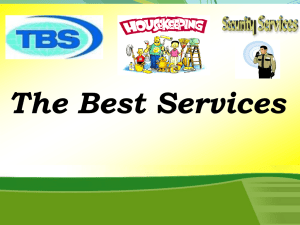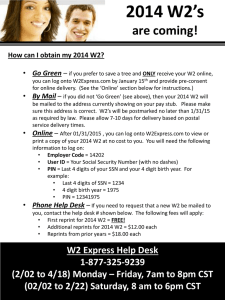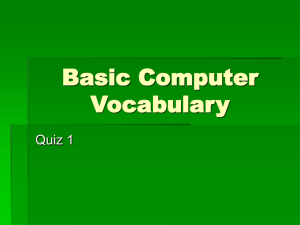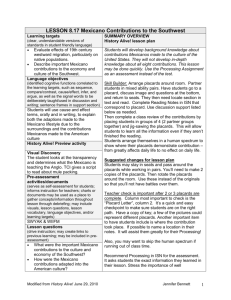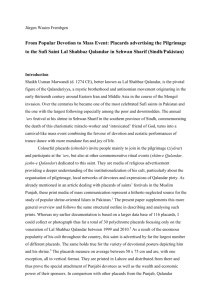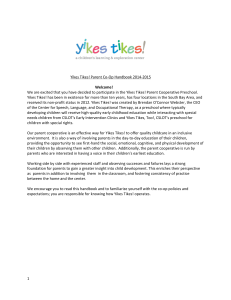Ronald G. Helms
advertisement
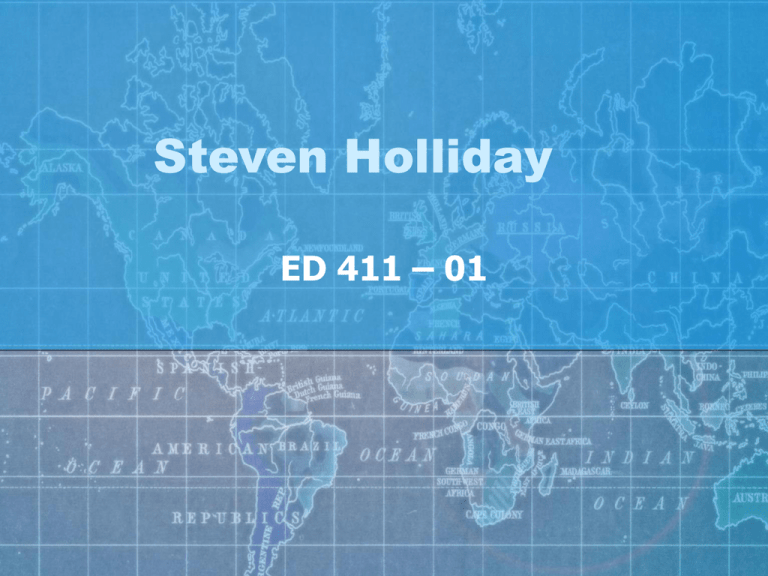
Steven Holliday ED 411 – 01 Social Studies Lesson Unit: Social Studies Grade Level: 1st Lesson: What is a Map? Objectives • Physically re-create a story and its setting using pictures. • Learn how to use symbols to create a map. • Practice reading a map in pairs. • Learn about map symbols, keys, and directions. • Create their own unique maps. Materials Needed •Social Studies Alive! •Transparency 6.3 Big Book and Student editions •Student Handout 6.5 (1 per child) •Interactive Student Notebooks •Placards 6.1 A – H My School and Family •Interactive Desk Maps •Chapter Opener Transparency 6 •Scissors •Crayons Activity 1 – Pre-view: Hearing the Story “Yikes! A Mouse!” Steps: 1. Read “Yikes! A Mouse!” 2. Ask children to recall the objects Ms. Hutchinson passed as she looked for the mouse. 3. Prepare to re-create the story. 4. Re-read the story as children re-create it. 5. After placard holders are in place, have one child play the teacher and one play the mouse as the class re-creates the story once more. Activity Materials – Chapter Opener Transparency 6, Interactive Desk Map, and Placards 6.1A-H Activity 2 – Discovering What a Map Looks Like Steps 1. Ask Children to gather in their reading circle and reread “Yikes! A Mouse!” 2. Distribute Placards 6.1A-H, and have children stand in their locations from the day before. 3. With Children’s help, draw a map on the board. Activity Materials – Chapter Opener Transparency 6, Interactive Desk Map, and Placards 6.1A-H Activity 3 – Reading a Classroom Map Steps 1. Introduce the new ideas (map, symbol, map key, and direction) by reading aloud pp. 33 – 37 in the Big Book. 2. Place children in mixed-ability pairs, and give each child an Interactive Desk Map. 3. Instruct children to follow a series of directions using their Interactive Desk Maps. Activity Materials – Social Studies Alive! My School and Family Big Book, Interactive Desk Map, and Transparency 6.3 Activity 5 – Creating a New Map of Ms. Hutchinson’s Classroom Steps 1. Have children create their own maps. 2. Have children share their maps. Activity Materials – Interactive Student Notebooks, Student Handout 6.5 (1 per child), Scissors, and Crayons Activity 4 – Reading About Features of a Map Steps 1. Review the term map. 2. Read about symbols. 3. Read about map keys. 4. Read about directions. 5. Assign Reading Notes 6. Activity Materials – Social Studies Alive! My School and Family Student Edition, Interactive Student Notebooks, and Crayons Literature Connection Mapping Penny’s World, by Loreen Leedy Me on the Map, by Joan Sweeney Mouse Views: What the Class Pet Saw, by Bruce McMillan Making Our Own Map This is the hall way that leads to our class. Making Our Own Map Here is the play area in front of our classroom. Making Our Own Map This is the sink in our classroom neighborhood. Making Our Own Map Here is one view of our classroom. What do you see? Making Our Own Map Here is our dramatic play area. Making Our Own Map Here is our circle area. Making Our Own Map Here is our art area. Making Our Own Map Here is our writer’s and reader’s workshop area. Making Our Own Map Here is our music area. Making Our Own Map Here is our science area. Making Our Own Map This is where the students and teacher work. Resources on the Web Social Studies School Service www.socialstudies.com Atlapedia Online http://www.atlapedia.com/ National Geographic.com for Kids http://magma.nationalgeographic.com/ Discovery Kids http://www.discoverykids.com/ Ohio Historical Society http://www.ohiohistory.org/


